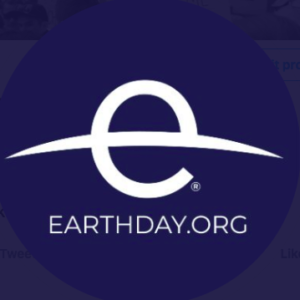Climate Action
Earth Day Network Releases 50 State Report on Environmental Literacy
November 4, 2016
FOR IMMEDIATE RELEASE: November 3, 2016
CONTACT: Rachel Hamrick, 202-236-1374
Earth Day Network Releases 50 State Report on Environmental Literacy
Report finds politics is not a barrier to teaching environmental literacy
Funding remains a major impediment
Washington, DC – Earth Day Network announces a new report today, “A Criteria-Based Evaluation of Environmental Literacy Plans in the United States,” that analyzes the status of Environmental Literacy Plans (ELP) in all 50 US states.
The original driver of state environmental literacy plans was the No Child Left Inside Act of 2007, which would have funded the development and implementation of ELPs. When the legislation failed, many state education directors and state environmental organizations pushed ahead and began drafting their own plans. In December of 2015, the Every Student Succeeds Act passed with bi-partisan support, including language for the first time in US history that supports environmental education.
The report evaluates the state plans on integration of environmental education into current state standards, proposed graduation requirements for environmental literacy, suggested steps for teacher professional development, detailed assessment strategies, proposed funding sources, and policy action steps. Based on the rankings by robustness of the ELP, the findings show the top 5 states are, respectively, Oregon, DC, Kansas, Illinois, and Colorado. (The complete rankings can be seen here.)
Kathleen Rogers, President of Earth Day Network, said, “As we face the realities of climate change – unpredictable temperatures, endangered species, droughts, and crop difficulties – having environmentally literate citizens is more essential than ever. We need to promote environmental consciousness into our children’s curricula, so they are able to analyze problems, think critically, balance needs and take informed action.”
The report creates a baseline for evaluating the environmental literacy plan movement and can be used as a guide by states to continue to build on the significant progress that has already been made.
The report found that strong plans came from both red and blue states, indicating that political affiliation was not a factor in whether a state plan was supported. For example, states such as Kansas, Tennessee, Kentucky, and Alabama are historically conservative states, and yet are amongst the highest-ranking plans in the 2016 evaluation. “We can say that this shows bipartisan support because the strength and robustness of the plan is what matters,” Karena Mary Ruggiero, author of the report, says, “the strongest plans are supported regardless of political affiliation.”
Ruggiero, explains, “Many states have struggled to overcome barriers in development and implementation of their plans. States have been able to develop plans through primarily volunteer efforts and have had some success, but need federal and state funding in order to move fully to successful implementation.”
According to the North American Association for Environmental Education (NAAEE), “Many states are struggling to find funding to support creation, adoption, implementation, and/or assessment of their ELPs. Sixty-three percent of states have no funding at all; 35% have partial funding; and only 2% have full funding to support their ELPs. Across the country, state organizations reported their biggest challenges to implanting their ELP were funding and, consequently, capacity.”
The entire report is available online here.
#####
Earth Day Network (EDN) is the world’s largest recruiter for the environmental movement, working with more than 50,000 partners in 196 countries to build environmental democracy worldwide. EDN works year-round through a combination of education, public policy, activist and consumer campaigns, bringing together citizens, governments, and businesses to create inclusive environmental progress.
The report, “A Criteria-Based Evaluation of Environmental Literacy Plans in the United States,” was authored by current EDN staff member Dr. Karena Mary Ruggiero during her doctoral research at the University of Tennessee.
DOWNLOAD the press release here.